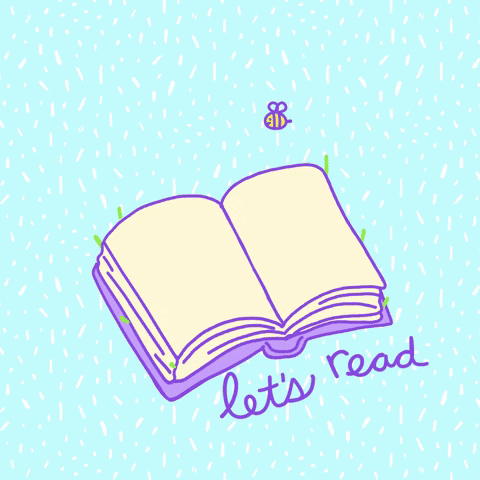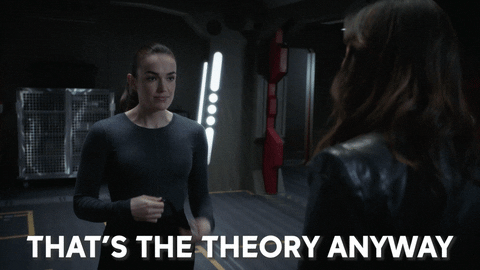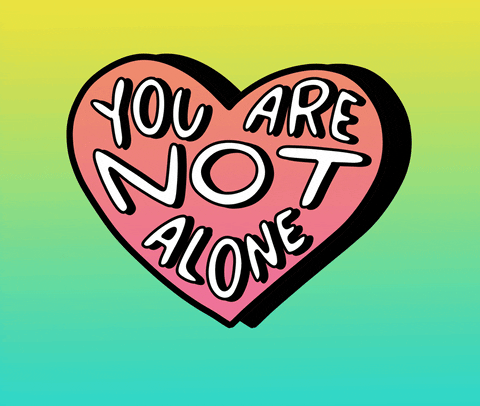Complex PTSD Books | Recommended Reading For Those Who Experienced Childhood Abuse & Trauma
If you've been struggling to find good information on complex PTSD, childhood abuse, narcissistic abuse, emotional neglect, and trauma, this video is for you.
I'm going to list my top four favorite books on these topics, what I like about them, and help you decide which one to read first.
Hi! I'm Cassie Winter. I have C-PTSD, severe depression, and anxiety from childhood trauma, neglect, and abuse.
On my road to healing I have read so many books, and some of them made a huge difference for me, which is why I want to pass them on to you.
Watch the video below, or read on for the full transcript.
Book Recommendation #1
The book I recommend the most often is "Complex PTSD: From Surviving to Thriving" by Pete Walker. Of all of the books that I've read on trauma, it is my favorite because it's chock full of information, is easy to understand, and is so, so validating.
I saw so much of myself in this book - in the descriptions and stories - and it helped me stop beating myself up and start healing.
I recommend that anyone who wants to learn more about complex trauma (which is also sometimes referred to as "chronic trauma") read this book, especially if you're just starting to learn about this topic and aren't quite sure if what you've experienced qualifies as complex trauma.
The rest of the books I'm going to recommend aren't in any particular order, instead they each focus on a different sub-topic and I recommend them all equally.
So if you haven't read Pete Walker's "Complex PTSD: From Surviving to Thriving" yet, start with that book. Then come back and pick the sub-topic that seems most relevant for you, and read that one next.
Book Recommendation #2
By the time I learned about narcissists, narcissistic abuse, and toxic parents, I had already gone no-contact with my father and hadn't spoken with him in years.
To say that discovering the existence of narcissistic abuse blew my world wide open is an understatement.
I finally understood why cutting my father out of my life had been the only safe option for me.
The first book I read on this topic was "Toxic Parents" by Susan Forward, and I highly recommend it.
Here's a little taste from the book of what it means to be a child of a toxic parent:
"The child is at the mercy of [their] godlike parents and, like the ancient Greeks, never knows when the next lightning bolt will strike. But the child of toxic parents knows that the lightning is coming sooner or later. This fear becomes deeply ingrained and grows with the child. At the core of every formerly mistreated adult—even high achievers—is a little child who feels powerless and afraid." Forward, Susan; Craig Buck. Toxic Parents: Overcoming Their Hurtful Legacy and Reclaiming Your Life (p. 17). Random House Publishing Group. Kindle Edition.
If you see yourself in that quote at all, definitely add this book to your reading list.
Book Recommendation #3
Next, it's important to understand that can toxic parenting varies widely. Toxic mothers tend to behave differently than toxic fathers, for example, and understanding those nuances can be really helpful when you're trying to heal.
If you believe your mother is a source of your trauma, it can be really helpful to read about toxic mothers specifically.
I've read more than one book on this topic, and I can confidently say that "Mothers Who Can't Love" by Susan Forward (yes, the same author of "Toxic Parents") is the best one.
By the way, I've linked to all of these books in the description box below. Let me know in the comments which one you're most interested in reading and why.
Book Recommendation #4
Once you've fallen down the rabbit hole that is researching trauma, you'll likely discover different theories, such as Polyvagal Theory and Attachment Theory, that can help you understand your experience more.
I currently don't have a book yet to recommend for Polyvagal Theory, as the one I've read "The Pocket Guide to Polyvagal Theory" by Stephen W. Porges was dense, dull, at times difficult to understand, and not very applicable without a therapist trained in that theory.
I do, however, have a book that I highly recommend for Attachment Theory, and it's the fourth and final book on the list: "The Power of Attachment" by Diane Poole Heller is an excellent book that I highly recommend.
Attachment Theory takes the concept of fight, flight, freeze, or fawn (which Pete Walker talks a lot about in his book) and expands upon it. It shows how our relationships with our parents when we were children can affect how we behave in relationships today as adults.
Do you tend to sabotage relationships to avoid intimacy?
Do you tend to end up in relationships with emotionally unavailable people?
Do you find yourself in abusive relationships often?
Do you tend to be clingy in your relationships?
Do you vacillate from needy to avoidant in your relationships?
Attachment Theory helps us understand why we behave the way we do in our adult relationships. "The Power of Attachment" by Diane Poole Heller is an excellent resource for not only learning more about Attachment Theory, but it also has lots of exercises to help you heal your attachment wounds.
I highly recommend it.
So those are the top four books I recommend for those starting to learn about complex trauma.
The Book I DON'T Recommend
If you've spent any amount of time researching this trauma, however, you may be wondering, "Cassie, what about 'The Body Keeps The Score?'"
"The Body Keeps The Score" by Bessel van der Kolk is a book that gets recommended a lot.
I, however, do not recommend it, particularly if you've never read a book about trauma before.
While I wholeheartedly agree with the premise that "the body keeps the score" and think it's an excellent book, Bessel van der Kolk's book focuses more on PTSD than C-PTSD, and that can be invalidating for those of us with complex or chronic trauma.
So if your trauma comes from only one, or a very small handful of traumatic events (like a car crash, a school shooting, a traumatic surgery, or any other traumatic event) I do recommend reading "The Body Keeps The Score."
If, however, your traumatic experiences are many and/or were chronic (such as ongoing childhood abuse over years and years of your life), it's more likely that you have complex trauma and should not start with "The Body Keeps The Score." Instead you should start with Pete Walker's "Complex PTSD: From Surviving To Thriving" and then move on to one of the others books I recommended in this video.
There you have it, the four books on trauma I recommend, and a couple that I don't.
I really hope this list helps you take the next step on your healing journey. Please remember that you're worth it, and you're not alone.
In the meantime, if you're wondering about who I am and what I do, I'm an accountability and life coach for creatives with chronic illness, trauma, depression, and anxiety. I help them go from stuck to unstoppable without overworking themselves inside my coaching membership, Accountability Muse.
If you struggle with procrastination and resistance, I highly recommend checking out my free Masterclass where I teach you three mindset shifts and one simple three-step system to help you kick procrastination to the curb.
All you have to do to get access is go to this link and sign up.
If you liked this video, hit that like button and subscribe, and be sure to share it with your friends.
I'm taking a break next week, but I'll be back in two weeks with another video.
See you then.
Bye.







